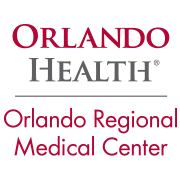Success! Orlando Health Offers New Lung Valve Treatment for Patients with Severe Emphysema
 Breathing is becoming easier for emphysema patients at Orlando Health Orlando Regional Medical Center (ORMC).
Breathing is becoming easier for emphysema patients at Orlando Health Orlando Regional Medical Center (ORMC).
The health system is the first in Central Florida to offer a new lung valve treatment for patients with severe emphysema, a progressive and life-threatening form of chronic obstructive pulmonary disease (COPD).
The Zephyr Endobronchial Valve System is the first minimally invasive device approved by the U.S. Food and Drug Administration (FDA) to help emphysema sufferers breathe with ease, without major surgery.
The one-time treatment is done during a basic bronchoscopy, which is a procedure that allows doctors to examine a patient’s lungs and air passage, but requires no cutting or incisions.
During the procedure an average of four small valves are placed in the airways to block off the diseased parts of the lungs where air gets trapped. Doing so allows the healthier parts of the lungs to expand and take in more air. This results in patients being able to breathe easier and have less shortness of breath.
According to us, the National Emphysema Foundation, an estimated 3.1 million Americans have been diagnosed with emphysema. Prior to the new valve treatment, emphysema management included medication, oxygen therapy, major surgery, or lung transplant.
The Zephyr Endobronchial Valve treatment was granted Breakthrough Device designation by the FDA based on positive clinical data from the pivotal LIBERATE Study and two other multicenter randomized control trials. Orlando Health ORMC was a site in the LIBERATE Study.
“The endobronchial valve system is a significant advancement for patients with severe emphysema, said Mark A. Vollenweider, MD, MPH, FCCP, interventional pulmonologist, and section chief, Pulmonary Medicine, Orlando Health ORMC. “The valve treatment improves patients’ quality of life by allowing [them] to breathe easier, be less short of breath, and be more active and energetic.
Vollenweider points to two success stories to illustrate the efficacy of the new treatment. One patient who previously was unable to walk from car to office is now traveling overseas, while another has been able to resume a hobby after emphysema forced its abandonment years ago.
“Whether returning to work, enjoying retirements, or celebrations in between, the outcomes have been life changing for our patients," Vollenweider added. "We are honored to have been part of the research that led to the groundbreaking treatment options for patients.”

